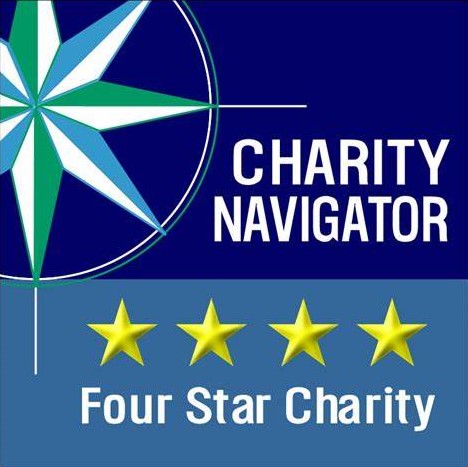You are very well known across the larger kidney community for leadership, medical expertise, and respect for patient insights. For AAKP readers, can you tell us how patients have informed your view of medicine, and your role as a thought leader in kidney medicine and kidney innovation?
I received my training in kidney disease at the Brigham and Women’s Hospital and Harvard Medical School. From the beginning of my training, I have been associated with nephrologists who emphasized focusing on all aspects of care for patients with kidney diseases and emphasizing the need to understand the social burdens that kidney diseases can place on a patient and his or her family. I have continued to emphasize a holistic approach to the care of kidney patients throughout my time as a faculty member at Vanderbilt University Medical Center. During my time as the Division Chief of the Nephrology Division at Vanderbilt, I tried to impart these concepts on our trainees. I also had the privilege to serve as a Councilor of the American Society of Nephrology from 2010 to 2017 and as the President of the society in 2016, and am gratified that the ASN has become much more patient-centric in its outlook and approaches.
For readers that may be reading about your leadership of the Kidney Health Initiative (KHI) for the first time, can you summarize the organization’s mission and what direction it has taken under your leadership?
KHI was founded in 2012 as a public-private partnership between the ASN and the Food and Drug Administration (FDA) to “catalyze innovation and the development of safe and effective patient centered therapies for people living with kidney diseases.” At the time of its founding, there were few new therapies and approaches to treat the progression toward kidney failure or provide innovative alternatives to dialysis. KHI’s membership has progressively increased and now has over 100 members, representing all aspects of the kidney community, including device manufacturers, both large and small biotech and pharmaceutical companies, patient organizations (including AAKP!), non-profits, research foundations, and representatives of FDA, CMS, CDC, and
NIH. After 6 very successful years under the co-chairmanship of Prabir Roy-Chaudhury, I assumed the position of co-chair in 2019. Our current direction for KHI is to support closer collaboration and partnership in drug, biologics, or device development as well as increase novel approaches to clinical trials and broader access to our patients for participation in trials, including trials relating to COVID-19 therapies and prevention.
KHI has been instrumental as a catalyst for spurring innovation and the development of safe and effective patient-centered therapies for people living with kidney diseases. As the largest independent patient-led organization in the U.S., AAKP has been honored to have its Board Members and Ambassadors represent various positions throughout KHI, including the KHI Board and the Patient and Family Partnership Council (PFPC). Can you tell us some of KHI’s biggest accomplishments to date that have helped advance kidney care and further legitimatize patient preference insights?
KHI promotes a patient-centric focus in all of its activities. KHI has been instrumental in working with the FDA to develop new guidelines for clinical trials in kidney diseases, including vascular access, FSGS, IgA nephropathy, and primary hyperoxaluria. KHI published the Technology Roadmap for Innovative Alternatives to Kidney Replacement Therapy in 2018. This technology roadmap has become the technical construct for the KidneyX program. We are currently supporting the resilience of clinical trials due to COVID-19, and more importantly, working to identify and provide opportunities for people with kidney disease to participate in COVID-19 vaccine and therapeutic trials. In all of these projects, there has been a strong patient-centric focus, and kidney patients, either members of the KHI Patient and Family Partnership Council or other interested and committed kidney patients from the community, have been active participants and leaders in these KHI initiatives.
Under your leadership, KHI has issued two statements during the COVID-19 pandemic, encouraging the inclusion of people with kidney diseases in COVID-19 vaccine trials. As strategic partner of KHI, AAKP agrees with KHI’s statements and has repeatedly shared them across our social media and email platforms. Can you tell us why is it so crucial to have kidney patients and greater diversity represented in COVID-19 clinical trials?
Unfortunately, it is clear that when people living with kidney diseases contract COVID-19, they have increased complications and mortality. Therefore, they are a vulnerable population that should be among the first to receive new therapies or a vaccine when one or more becomes available. For this reason, it is imperative that we understand whether any therapy or vaccine is safe and effective in people living with kidney diseases.
As we begin to see COVID-19 vaccines become available to the American people, the kidney community must anticipate how approved vaccines will be allocated. AAKP believes kidney patient inclusion in both clinical trials and vaccine access are top priorities. KHI, AAKP, and other stakeholders are partners to drive this message. What can a reader do from their phone or laptop to help spread the word?
AAKP has been a strong and important partner to KHI in getting the word out about the importance that people with kidney diseases be included in the ongoing COVID-19 trials. I hope that AAKP members can also discuss this important topic on social media, including Twitter, Facebook, or other venues. I would also encourage anyone who is interested in participating to discuss the possibility of participating with their health care providers to see about whether they could be eligible to enroll in a trial.
KHI recently put out a COVID-19 Position Paper on Accelerating Home Therapy Technology as an opportunity to keep dialysis patients safe during the pandemic. For 50 years, AAKP has been a vocal and staunch supporter of patient care choice, including home therapies. How can AAKP and its patient members support efforts to increase the availability of home dialysis options to all patients?
I hope that all members of AAKP who are planning or are currently receiving dialytic therapy have discussions with their nephrologists and other health care providers about the option of one of the current home therapies. In addition, the patient voice can speak the loudest in the halls of government. When both elected and appointed representatives at all levels of government hear from patients, they are more likely to recognize the impact and importance of the message. Therefore, I hope that AAKP and its members will continue to emphasize the importance of patient choice and participation in designing and implementing clinical trials so that we can together achieve the goal set forth in the 2019 Advancing American Kidney Health Initiative issued by the federal government.
In 2019, AAKP announced its Decade of the Kidney™ initiative, marking 2020-2030 as a time when kidney patients will witness the accelerating evolution away from the tired status quo of brick and mortar dialysis as we know it and toward a future defined by patient choice, precision medicine, treatments that inhibit kidney disease and prevent kidney failure, and greater access to donated organs and new devices—including artificial wearable and implantable kidneys. As a practicing physician, researcher, and KHI Chair, how do you see the future of kidney care evolving?
I am optimistic about progress we can make in the next decade to develop new treatments for people living with kidney diseases. We have recently had new breakthrough therapies for prevention of progression of chronic kidney diseases, and there is increasing enthusiasm in the pharmaceutic industry to develop more new therapies. The Advancing American Kidney Health initiative has as its laudable goals to help to develop further new therapies and strategies for slowing progression of CKD, to increase the number of patients receiving home dialytic therapies, and to increase the number of patients able to receive a kidney transplant. In addition, HHS is partnering with the ASN to provide prize competitions through KidneyX to promote novel alternatives to current dialysis modalities, including development of effective wearable or implantable devices.
As patients, we each have our heroes–a person from our own lives or history that inspires us. During this time in America, with COVID-19 creating so much stress, can you tell us who your heroes are and why?
My hero is not a single person, but rather a type of person. It is one who is interested in the welfare of others rather than thinking only of himself or herself and provides important service to society, whether it is in health care, as a teacher, in the military, or in the public sector.
Raymond C. Harris, MD, FASN, is a graduate of Yale College and Emory University Medical School. He undertook his residency training at the University of California, San Francisco and his nephrology fellowship at Brigham and Women’s Hospital. He has been a faculty member at Vanderbilt University School of Medicine since 1986 and is currently the Ann and Roscoe R. Robinson Professor of Medicine and Molecular Physiology and Biophysics. He served as Chief of the Division of Nephrology and Hypertension from 2000-2018 and is currently Associate Chief. Dr. Harris is also the Director of the Vanderbilt Center for Kidney Diseases and the Director of the Vanderbilt O’Brien Center. Additionally, Dr. Harris has served on numerous grant review committees, including NIH Pathobiology A, NIH Pathobiology of Kidney Disease (Chair), VA Merit Review Board (Chair), and NKF Basic Science Fellowship Committee (Chair), and is currently serving on the NIDDK Board of Scientific Counselors. Dr. Harris served on the ASN program committee in 2007 and 2008 and chaired the committee in 2009. He served as Associate Editor of JASN from 2004-2007 and Deputy Editor of JASN from 2007-2010. He was elected to the ASN Council in 2010, served as the Chair of the Education Committee from 2010 2014, and as President from 2016-2017.






























